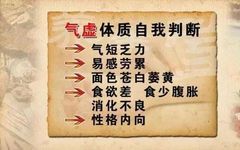Healthy life is beautifulto popularize health knowledge for you
Click below to follow for free↓↓↓
Qi deficiency syndrome refers to the symptoms resulting from the decline of organ function. It is often caused by prolonged illness, excessive fatigue, or aging.
Manifestations: shortness of breath, lack of energy, dizziness, spontaneous sweating, symptoms worsen with activity, pale tongue with white coating, weak and forceless pulse.
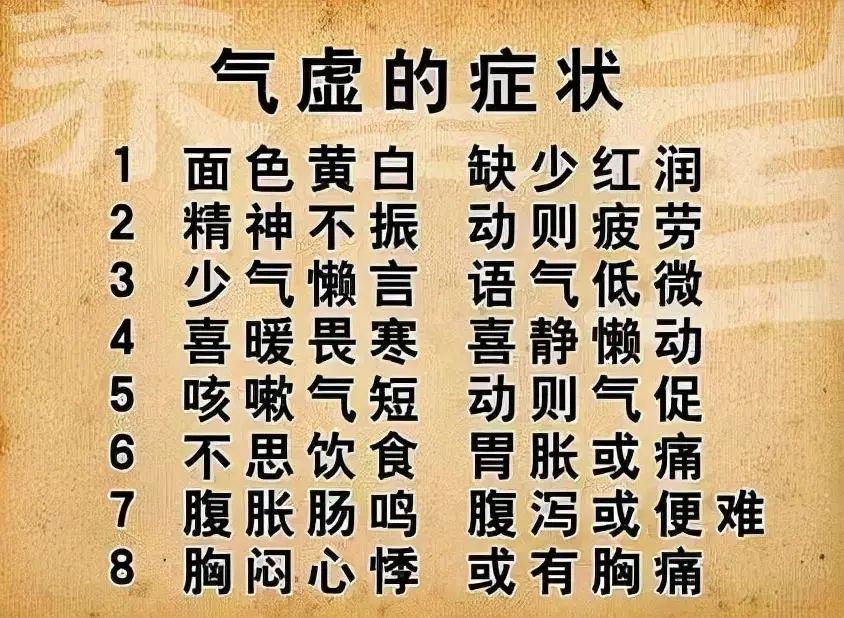
Qi deficiency adjustment: Qi deficiency generally refers to physical weakness, pale complexion, shortness of breath, fatigue in limbs, dizziness, sweating with movement, low voice, etc. It includes the deficiency of Yuan Qi (元气, Original Qi), Zong Qi (宗气, Ancestral Qi), and Wei Qi (卫气, Defensive Qi), as well as the reduction of Qi’s functions in promoting, warming, defending, consolidating, and transforming, leading to decreased functional activities of the body and weakened disease resistance. Fundamentally, human life activities are the movement of Yuan Qi in and out; insufficient Yuan Qi can cause fatigue, weakness in the waist and knees, low voice, chest tightness, lack of spirit, dizziness, insomnia, forgetfulness, and poor appetite.
Causes of the disease
Qi deficiency is often due to congenital insufficiency, lack of nourishment after birth, excessive labor leading to depletion (“exertion depletes Qi”), prolonged illness without recovery, or decline in the functions of organs such as the lungs, spleen, and kidneys, resulting in insufficient Qi production. When compared with modern medicine, Qi deficiency is very similar to the concept of “sub-health”.
Relationship and differences between Qi deficiency and Qi sinking
Both Qi deficiency and Qi sinking are pathological changes of deficiency in Qi diseases, but they are distinct from each other.
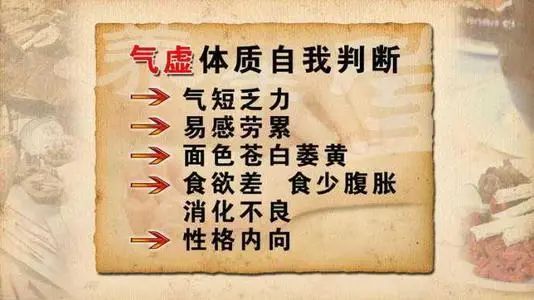
Qi deficiency involves the five organs
Qi is the most fundamental substance that constitutes and maintains human life activities, belonging to the category of human essence and Qi. Human essence and Qi are stored in the five organs, hence the “Su Wen: On the Five Organs” states: “The so-called five organs store essence and Qi without leaking.” Therefore, from the perspective of the source of Qi, the Qi that constitutes and maintains human life activities mainly comes from both congenital essence and acquired essence. From the perspective of the generation of Qi and its relationship with the organs, all five organs store essence and Qi, especially the lungs, spleen, and kidneys.
Qi deficiency and the Qi of the five organs. Qi deficiency refers to the pathological state of organ function decline and low disease resistance, which leads to a series of clinical symptoms. However, since Qi is stored in the five organs, Qi deficiency is usually related to the functions of those organs. The “Su Wen: On the Discussion of Prosperity and Decline” describes different dream states caused by lung Qi deficiency, kidney Qi deficiency, spleen Qi deficiency, heart Qi deficiency, and liver Qi deficiency. Therefore, the pathological concept of Qi deficiency should include the Qi deficiency of the five organs.
Lung Qi deficiency. The lungs govern Qi, control respiration, connect with the skin and hair, and regulate water pathways. When lung Qi is deficient, its functions of dispersing and descending, controlling respiration, regulating water metabolism, and resisting external pathogens weaken, leading to symptoms such as shortness of breath, spontaneous sweating, low voice, cough, chest tightness, susceptibility to colds, and even edema and difficulty urinating.
Kidney Qi deficiency. The kidneys reside in the lower back, store essence and Qi, and control the opening and closing of the two yin. Essence and Qi nourish the five organs and ascend to enrich the brain marrow. When kidney Qi is deficient, it fails to nourish, leading to symptoms such as fatigue, dizziness, forgetfulness, weakness in the waist and knees, frequent clear urination, thin white discharge, pale tongue, and weak pulse. If the kidneys do not retain Qi, breathing becomes shallow and rapid.

First, people with Qi deficiency tend to sweat a lot.
Heart Qi deficiency. The heart governs blood vessels and houses the spirit. When heart Qi is deficient, it cannot promote blood circulation or nourish the spirit, leading to palpitations, shortness of breath, excessive sweating, worsening with exertion, fatigue, pale tongue, and weak pulse.
How to determine if one has Qi deficiency
To determine if one has Qi deficiency, one must first observe body shape. People with Qi deficiency tend to be overweight but soft and flabby, often referred to as “virtual obesity”. In TCM, this body type is called “noble person”, meaning those who live in comfort. Noble people engage in little physical labor, and farming is unsuitable for them; they are more suited to playing mahjong or chatting in a climate-controlled room. People with Qi deficiency are also sensitive to temperature changes, sweating easily in heat and feeling cold in cool weather, making them delicate and suited for a life of luxury. Therefore, many girls from affluent families exhibit this body type. Additionally, those with Qi deficiency easily become fatigued, speak softly, dislike loud discussions, and are prone to colds and organ prolapse, such as gastric or kidney prolapse, with pale tongues and thin, soft pulses.
Most importantly, now let’s take a look at the tongue. The tongue of a person with Qi deficiency often has teeth marks, indicating that it is swollen and produces more saliva!
So, what reactions do people with Qi deficiency have in spring?
First, people with Qi deficiency tend to sweat a lot.
In spring, as the Qi of the earth rises and flowers bloom, the Qi mechanism of the human body also changes. After a winter of closure, Yang Qi begins to emerge, and our skin gradually opens up. However, for those with Qi deficiency, the Wei Qi (卫气, Defensive Qi) is not solid, so when the Qi rises and emerges, and the body’s ability to consolidate is insufficient, sweat easily escapes, leading to excessive sweating.
Thus, people with Qi deficiency tend to sweat easily, especially in spring, where even slight movement or wearing a bit more clothing can lead to profuse sweating.
Secondly, people with Qi deficiency are particularly sensitive to wind in spring.
In TCM, spring corresponds to the east and the liver, which belongs to wood. At this time, the wind is active, and spring has the most wind. This creates a dilemma for those with Qi deficiency, as the weather begins to warm, requiring lighter clothing, but the wind is strong, making it easy for those who sweat to be affected by the wind, thus needing to wear more clothing. Therefore, I often say that those with Qi deficiency should prepare more clothing and change frequently; this is one way to cope.
Thirdly, people with Qi deficiency are particularly prone to colds in spring.
Due to constant sweating, those with Qi deficiency find spring uncomfortable, as the weather fluctuates significantly—some days are warm, while others are cold. Coupled with the constant invasion of wind pathogens, this season is particularly uncomfortable for those with Qi deficiency. Additionally, the warm and humid climate is conducive to the proliferation of bacteria and viruses, making colds more prevalent.
Thus, as the “Huangdi Neijing” states, “When the righteous Qi is stored within, evil cannot invade” and “When evil Qi gathers, its Qi must be deficient”, it warns that if your righteous Qi is insufficient, then evil Qi will take the opportunity to invade, which is the best advice for those with Qi deficiency.
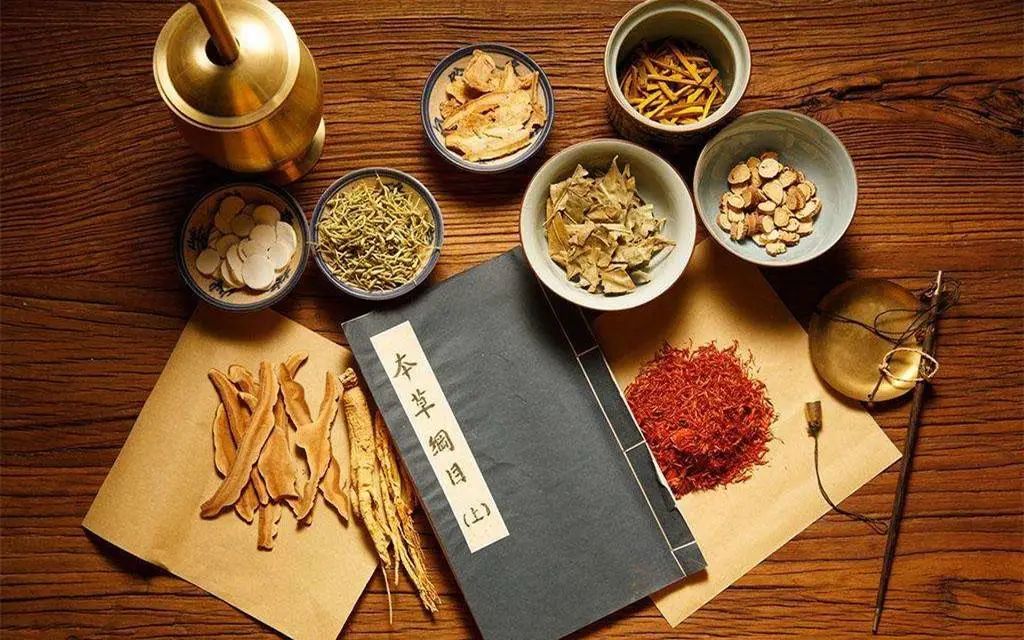
Fourthly, people with Qi deficiency often feel weak in their limbs in spring.
In spring, many people wonder why they feel so weak and lack energy. If someone feels sleepy and cannot wake up after sleeping for a long time, it may indicate blood deficiency, particularly if blood deficiency is more pronounced. If someone feels weak in their limbs and is reluctant to move, it may indicate more severe Qi deficiency. However, Qi deficiency and blood deficiency are closely related; Qi and blood nourish each other, and they often occur together, making it difficult to separate them.
Thus, it is normal for people to feel a bit lazy in spring, but if one feels extremely weak and wants to lie down, it is worth considering whether it is Qi deficiency.
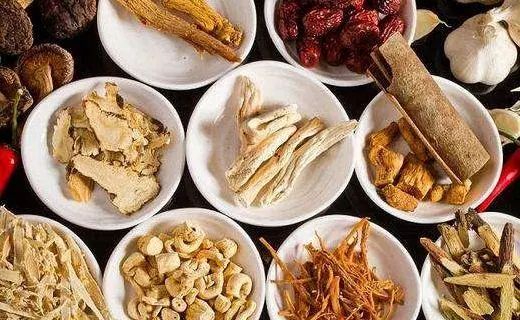
Fifthly, people with Qi deficiency are more prone to allergies in spring.
A significant portion of those with allergic constitutions are Qi deficient, making them more susceptible to allergic rhinitis and skin allergies during this season. In TCM, it is often necessary to tonify the patient’s righteous Qi for allergic symptoms to truly disappear.
So, what should people with Qi deficiency do at this time?
We say that spring is a time when all things grow, and human vitality is also increasing, making it a good time to adjust the body. Those with Qi deficiency can recover well if they focus on tonifying.
First, appropriate exercise is crucial.
The “Huangdi Neijing” states: “In the third month of spring, this is called emergence; heaven and earth are born together, and all things flourish. Sleep early and rise early, walk widely in the courtyard, let your hair down and relax your body, so that your spirit can grow…” This means that in spring, as nature flourishes, people should adapt to the vibrant state of nature by going to bed early and rising early, taking morning walks, exercising, and relaxing their bodies, allowing their emotions to align with the spring’s vitality, which is a method of health preservation in spring.
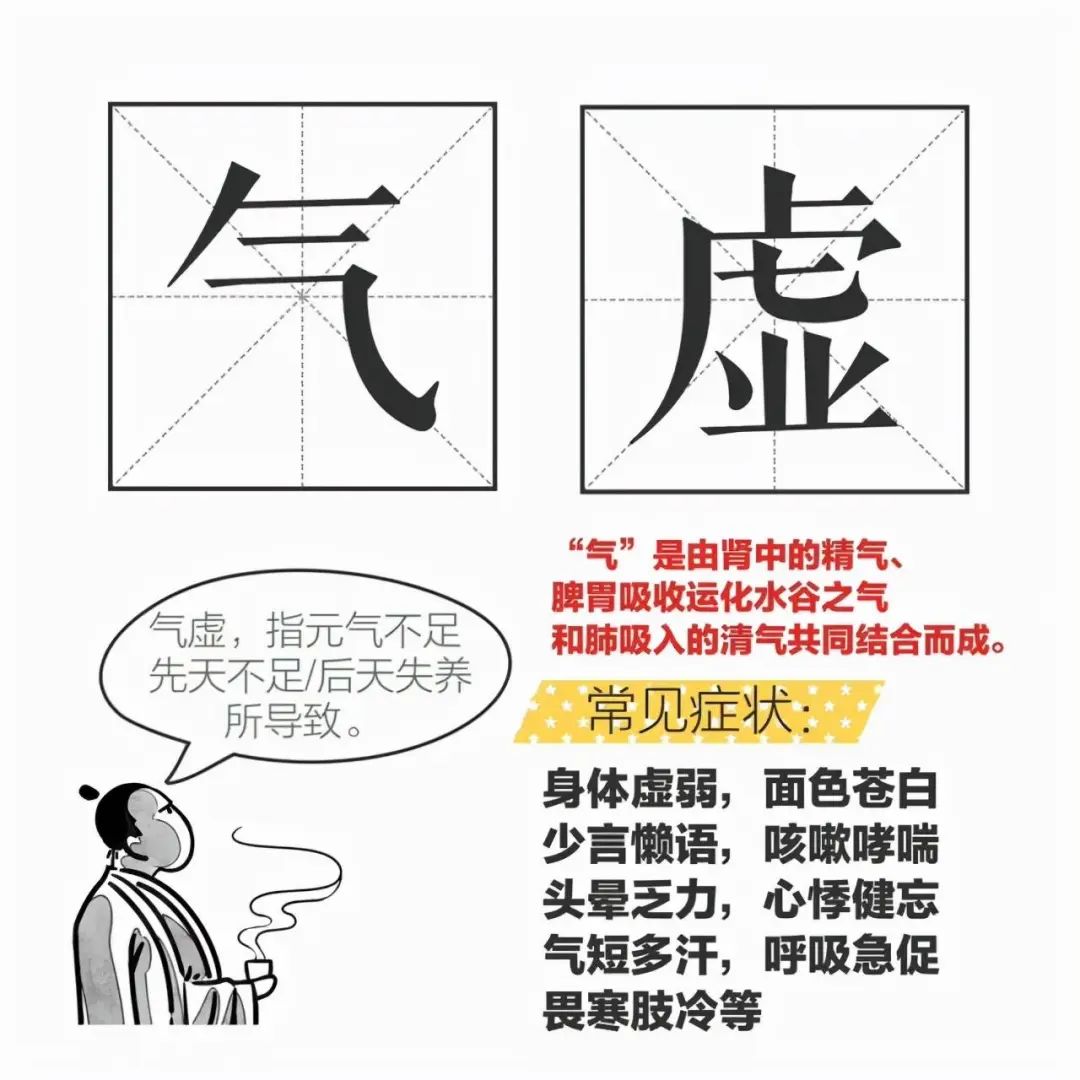
Secondly, diet should tonify the spleen.
In spring, the diet should follow the advice of the great physician Sun Simiao from the Tang Dynasty: “Reduce sour and increase sweet to nourish the spleen Qi.” This means eating less sour food and more sweet food to nourish the liver and spleen, which is beneficial for disease prevention and health maintenance. The sweet flavor refers to the mild taste in foods such as yam, pumpkin, sweet potato, glutinous rice, black rice, sorghum, millet, and oats, which are all excellent foods for tonifying the spleen and Qi, making them very suitable for those with Qi deficiency in spring.
“A person lives by a breath of Qi”; those with Qi deficiency have weak organ functions and often develop mixed symptoms of internal heat due to external pathogens or internal dietary stagnation. Qi deficiency is characterized by dysfunction of the lungs, spleen, and kidneys, leading to insufficient Qi production, resulting in fatigue, laziness, shortness of breath, palpitations, and spontaneous sweating.
So, what foods does TCM recommend for tonifying Qi? Here are six major Qi-tonifying foods:
Carp: Carp is one of the commonly eaten freshwater fish, known for its ability to strengthen the spleen, eliminate dampness, and warm the middle, enhancing appetite. It is beneficial for those with spleen and stomach weakness, edema, chronic bronchitis, and diabetes. The protein in carp is of high quality, complete, and easily digestible, making it a good protein source for patients with liver and kidney diseases and cardiovascular diseases, enhancing disease resistance.
Millet: Millet enters the spleen, stomach, and kidney meridians, and has the effect of strengthening the spleen and stomach, especially suitable for those with spleen and stomach weakness, often used as a nourishing food for women after childbirth. Studies show that the vitamin B1 and mineral content in millet is significantly higher than that in rice. When millet porridge is cooked and left to sit, a layer of film forms on the surface, known as “porridge oil”, which protects the gastric mucosa and prevents and treats gastric and duodenal ulcers.
Pigeon meat: Pigeon meat benefits Qi and nourishes blood, tonifies the liver and kidneys, detoxifies, and generates fluids, making it effective for those who are weak after illness, have menstrual irregularities, dizziness, fatigue, and memory decline. The blood-nourishing effect of pigeon meat is mainly reflected in its ability to improve skin and hair. The bones of pigeons contain rich components like chondroitin, which can enhance skin cell vitality, improve blood circulation, and increase skin elasticity, giving a rosy complexion. Pigeon meat is also rich in pantothenic acid, which is beneficial for hair loss, premature graying, and dry hair. Additionally, compared to other poultry, pigeon meat is easier to digest, making it suitable for those with spleen and stomach weakness.
Yam: Known as the “food of immortals”. The “Bencao Gangmu” states: “Yam benefits kidney Qi, strengthens the spleen and stomach, stops diarrhea, transforms phlegm, and moistens the skin.” Yam can tonify the lungs, spleen, and kidneys, suitable for various body types. It is neither hot nor dry, with a mild flavor, and does not cause bloating or constipation.
Potato: Due to its numerous benefits, the potato is also known as the “underground fruit”. Potatoes are particularly effective in tonifying stomach Qi, and they also have the effects of benefiting Qi, detoxifying, moistening the intestines, aiding weight loss, promoting blood circulation, strengthening the body, beautifying, and anti-aging. Potatoes are rich in potassium, calcium, iron, magnesium, and other trace elements essential for the human body. The popularity of potato foods worldwide is closely related to their rich nutritional value.
Shiitake mushrooms: Shiitake mushrooms are one of the “four great mountain treasures” and are known as the “queen of plants” and “vegetarian meat”. They have a regulating effect on those with Qi and blood deficiency and frequent fatigue. The “Bencao Gangmu” states: “Mushrooms can benefit the stomach and intestines, transform phlegm, and regulate Qi.”
Finally, medicinal tonics for Qi.
This formula comes from the Song Dynasty and consists of three herbs: Fangfeng (防风, Siler), Zhi Huangqi (炙黄芪, Honey-fried Astragalus), and Bai Zhu (白术, Atractylodes). It treats Qi deficiency leading to kidney instability, spontaneous sweating, susceptibility to wind pathogens, pale complexion, pale tongue with thin white coating, and floating weak pulse.
Alright, dear friends, we have introduced the methods of health preservation for those with Qi deficiency in spring. This is just one approach; everyone can find suitable methods based on their own body. I believe that those with Qi deficiency will safely pass through this spring and their health will improve!
Health enthusiastto popularize health knowledge for you
Click below to follow for free↓↓↓
Editor shares good articles with friends
1.What foods are best for spleen deficiency? Here are 6 foods to tonify the spleen and benefit the stomach, take them without thanks!
2. Waking up frequently at night? It’s due to excessive heart fire; a simple five-flavor herbal infusion can extinguish heart fire and calm the spirit.
3.So precious! Over 800 folk remedies, there’s no illness that can’t be treated; save for future reference!
4.The most comprehensive collection of massage techniques videos—those who want to learn massage should save it quickly!
Likeis a form of encouragement Share to spread joy

